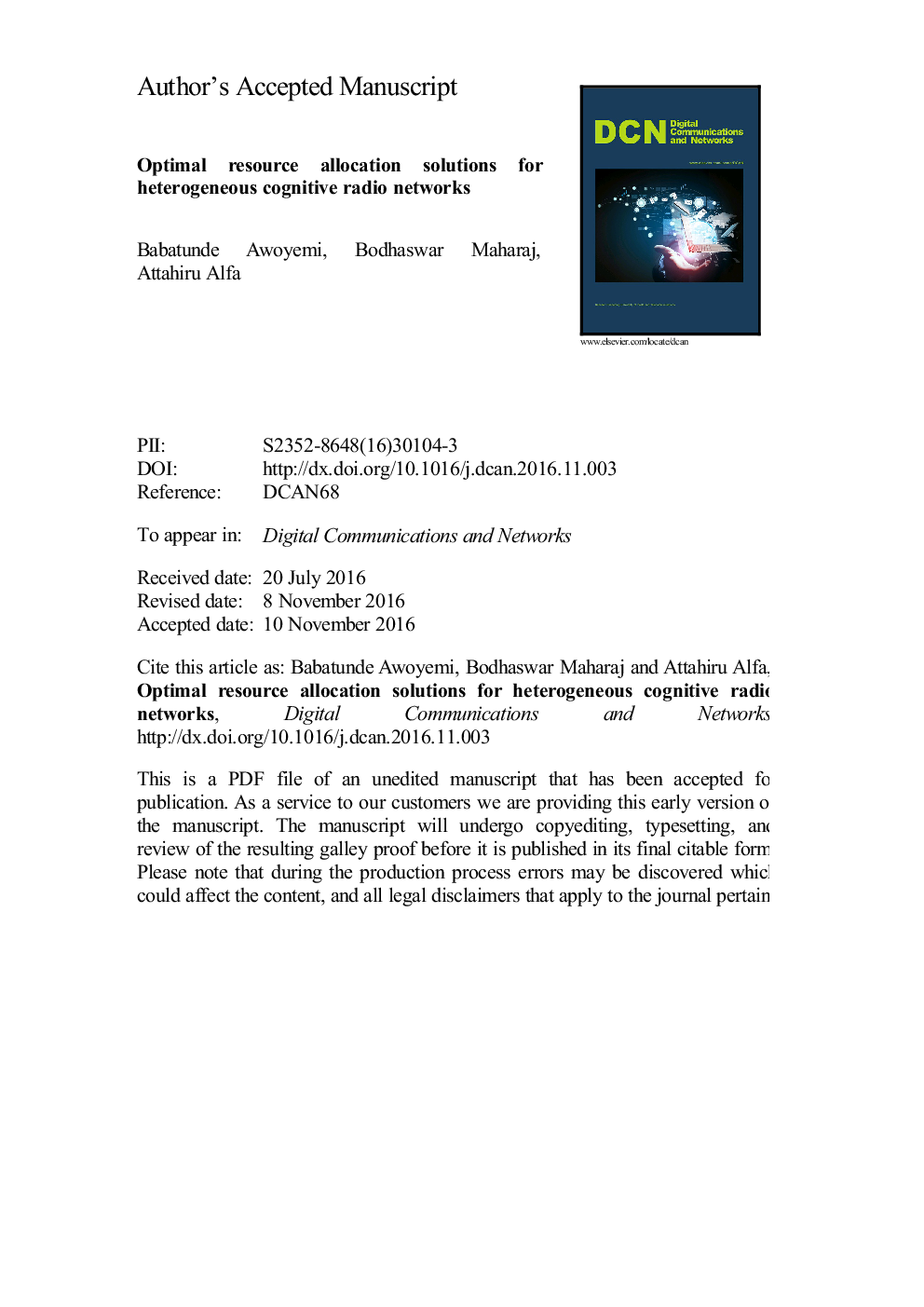ترجمه فارسی عنوان مقاله
راه حل های توزیع منابع بهینه برای شبکه های رادیویی شناختی ناهمگن
عنوان انگلیسی
Optimal resource allocation solutions for heterogeneous cognitive radio networks
| کد مقاله | سال انتشار | تعداد صفحات مقاله انگلیسی |
|---|---|---|
| 150473 | 2017 | 15 صفحه PDF |
منبع

Publisher : Elsevier - Science Direct (الزویر - ساینس دایرکت)
Journal : Digital Communications and Networks, Volume 3, Issue 2, May 2017, Pages 129-139
ترجمه کلمات کلیدی
شبکه رادیویی شناختی سیستم نامتقارن، برنامه نویسی خطی و غیر خطی، تخصیص منابع،
کلمات کلیدی انگلیسی
Cognitive radio network; Heterogeneous system; Linear and non-linear programming; Resource allocation;

